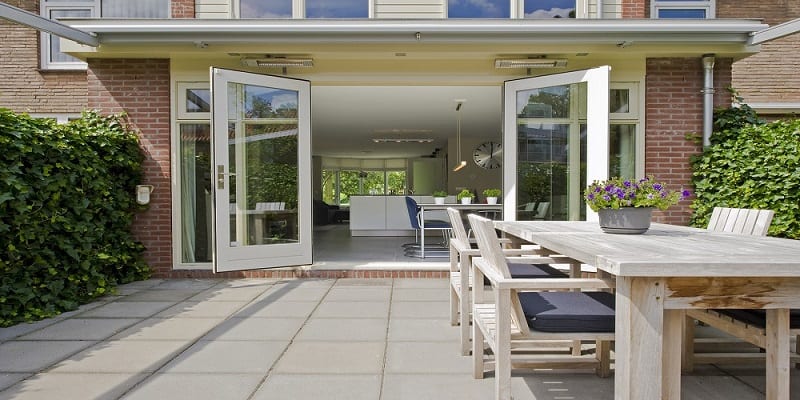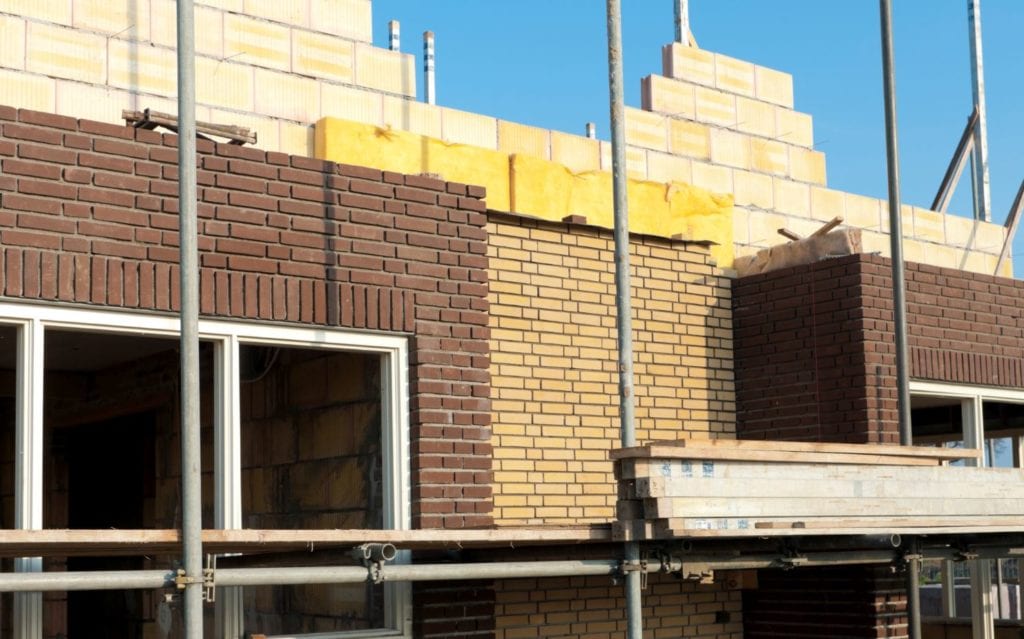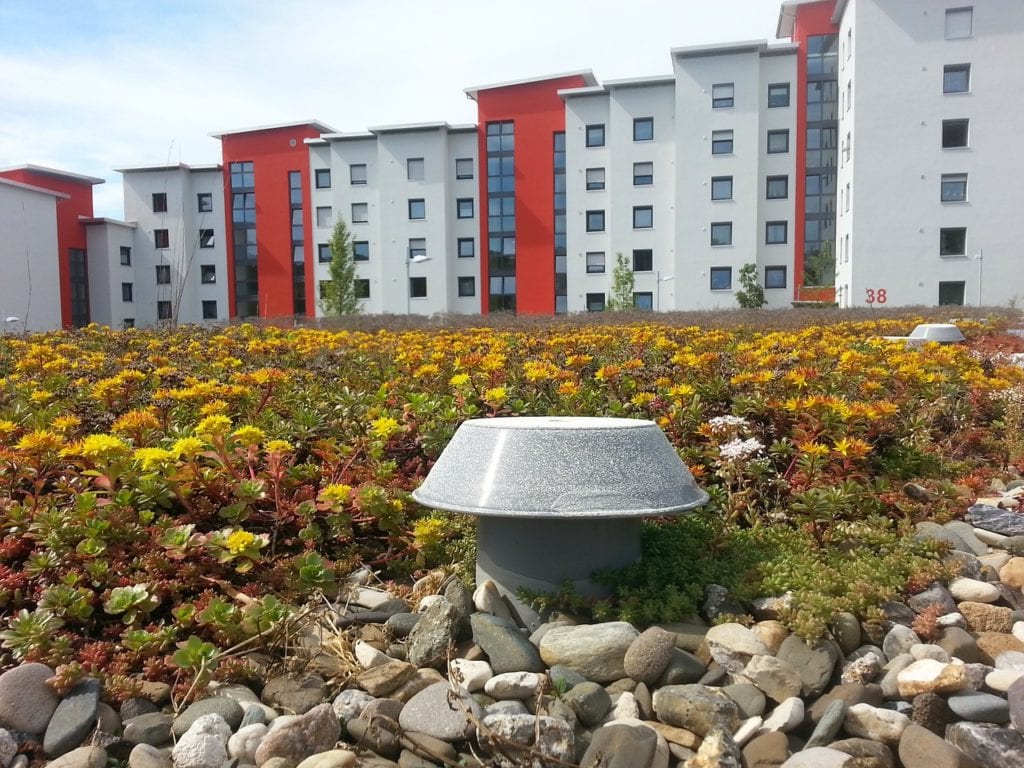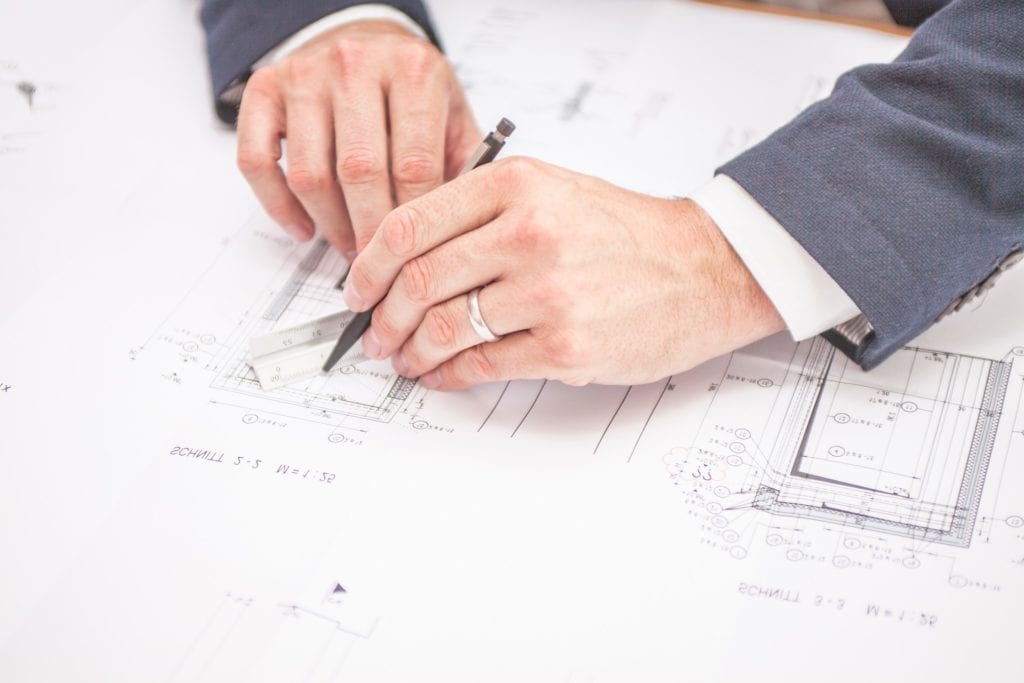Annex
Do you want to create extra space outdoors? But don’t fancy moving? Then opt for an extension. On this page, you will find more information about the costs of an extension, and the types and read more about the different parts of an extension.
Construction prices
An extension increases your living space and the value of your house. On average, an extension of 3 metres deep by 5 metres wide costs £16,000 to £25,000. The price strongly depends on the method of construction. Will you opt for a prefabricated or custom-built extension? Check the table for the average prices.
| Type of extension | Cost of prefabricated extension (ready-made) | Cost of customised extension |
|---|---|---|
| Standard | £ 16.000 – £20,000 | £19,000 – £23,000 |
| Classical/modern | £18,000 – £22,000 | £21,000 – £25.000 |
Find the best specialist for your project and get free quotes.
Start

Attachment or extension
Attachment and extension are terms that are often confused. Building an extension creates a separate space, such as a garage or utility room. An extension creates an enlargement of an already existing space. The costs of an extension or extension are very similar.
Customised or Prefab
Do you want the extension to be installed as soon as possible? Then choose a prefabricated construction. Do you want to personalise your extension? Then choose a custom-made one.
Prefab construction
Do you want to minimise the inconvenience of a renovation in and around your home? Then opt for a prefabricated extension. A prefabricated extension is quickly installed. It is built in a workshop or factory. This ensures that it is installed within one day. A prefabricated annex cannot be fully customised to your needs. However, there are many types available. Do you have specific wishes? Then choose a custom-made extension.
Customisation
The construction and finishing of the custom-made extension will be built at your home. The construction will take longer than an installation of a prefabricated extension. In addition, the price of a custom-built extension is higher. With a custom-built extension, you can be sure your extension wishes will be fulfilled.
Wood extension
A wooden extension is cheaper than a brick extension. This is due to its lightweight frame. The foundation and building structure need not be as strong. A wooden extension is also available as a prefabricated extension. Do you want a unique wooden extension that gives your home a rural look?
Erker
Do you want to add charm to your home? Then opt for a bay window. A bay window is an enclosed extension of a facade. Bay windows bring more light into the room by extending the facade by 1 to 1.5 metres. Bay windows can be found at the front and the back of the house. Remember that you need planning permission to build a bay window at the front of the house. Check out the table for bay window prices and dimensions.
| Width bay window | Depth bay window | Total average cost (including labour and VAT) |
|---|---|---|
| 3 metres | 1 metre | £4.300 |
| 3 metres | 1.5 metres | £6,300 |
| 4 metres | 1 metre | £5,600 |
| 4 metres | 1.5 metres | £8,400 |
| 5 metres | 1 metre | £7,000 |
| 5 metres | 1.5 metres | £10,500 |

The building process of an extension
This is probably the first and last time you will have an extension built. You will be faced with many choices. It is important to keep an overview throughout the building process. Below is a step-by-step plan for building your extension.
Step 1 – Preparation
Prepare yourself well for the construction. Think and sketch what your extension will look like. Check with the municipality whether you can build an extension and what the rules are. Discuss with the neighbours what they think about the extension. They have the right to object.
Ponder how big your extension should be. Do you want a prefabricated or custom-built extension? What material will the window frame be made of? And do you like to have extra light in your extension? Then opt for a roof dome. Later in this article, we will zoom in on different parts of the extension.
Step 2 – Architect
Do you have specific wishes for your extension? Then hire an architect. You will get a customised design for your situation. Ask your architects for examples of extensions. This will give you new insights. Don’t have any special wishes? Then the contractor will take the measurements.
Step 3 – Get quotes
Solicit quotes from several contractors. Compare quotes on price, call-out charges, quality marks, warranty, reviews and delivery time. Comparing quotes will save you a lot of money. Choose the contractor that suits you best.
Step 4 – Permit
Applying for a permit from your local council can take up to 3 months. In some cases, it is also necessary to apply for demolition and environmental permits. Applying for a permit is not always necessary. Ask your municipality about the current rules. We zoom in further on permits later in this article.
Step 5 – Financing
Financing an extension with your own money is nice. Is that not so easy? Then see if it is possible to finance the extension through a mortgage. You may well be able to; withdraw money from your current mortgage, add a second mortgage or convert your mortgage.
Step 6 – Contract
Is the financing in place? Then enter into a contract with your architect and contractor. It is important that agreements made are on paper. That way, no misunderstandings will arise during construction.
Step 7 – Planning
Your contractor will draw up a schedule. It is important that you keep an eye on it. This way, you will be aware of any delays or problems.
Stage 8 – Construction
When designs have been made, permits have been received and agreements have been contractually agreed, it is time for construction. The time it takes to build varies by type of extension and contractor. Do you opt for a prefabricated extension? Then it is possible that construction will be completed within 7 days. A custom-made extension takes 2 to 6 weeks on average.
Step 9 – Completion
Check out the building upon completion. Go through the whole extension with the contractor. Have all the jobs listed in the tender been done? Now is the time to make arrangements with the contractor. If the extension is completely satisfactory, then it’s time to enjoy your new living space.

Types of extension
Do you already know how you are going to extend your house? An extension creates more space in your living room or provides room for an extra-large kitchen. Remember that many pipes have to be moved with a kitchen extension. Do you mainly want more light in your home? Then go for a glass conservatory.
Installing an extension is a big project that can sometimes take several weeks. First of all, the foundation will be placed. Next, the specialist will break open the facade and build the new walls. The new facade will find its new place and the roof will close the construction. Read on to learn more about different parts of an extension.
Foundations
A foundation ensures that walls do not crack and the extension does not subside. The type of foundation is chosen based on the soil under your house. Does the soil consist of clay and peat? The weight of the extension will rest on piles. Is your house on sandy soil? Then the foundation will consist of concrete.
A foundation’s price depends on the foundation’s type and size. On average, a foundation costs £2,000 to £4,000.
Frames in your extension
The most commonly used materials for frames are plastic, wood and aluminium. Plastic has a long lifespan of, on average, 50 years. In addition, this type of window frame is very easy to maintain. Hardwood window frames last 40 to 75 years on average. Softwood window frames last 15 to 25 years. Wooden window frames require more maintenance, requiring a new coat of paint every few years. Aluminium window frames last 40 years on average. Window frames require little to no maintenance. Check the table for differences between window frames.
| Plastic window frames | Wood window frames | Aluminium window frames | ||
|---|---|---|---|---|
| Price-quality ratio | ++ | + | + | ++ |
| Isolation | ++ | ++ | ++ | |
| Maintenance | ++ | + | ++ | |
| Security (burglar-proof) | ++ | ++ | ++ | |
| Style and colour (the window frame type features a versatile design) | + | ++ | ++ | |
| Environmentally friendly | ++ | ++ |
++
Lifespan
++
about 50 years
++
-Hardwood window frames: 40 – 75 years
-Softwood window frames 15 – 25 years
+++
about 40 years
Glass for your extension
Use good insulating glass in your extension; this way, you will save on energy bills. Choose the popular glass HR++ for good insulation. This type of glass has the best value for money. HR+++ insulates even better but has a higher price per square metre. Check out the prices per type of glass per square metre and the annual cost savings.
| Type of glass | Average price per square metre, incl. VAT and installation | Annual cost saving for a home with 20m2 of glass |
|---|---|---|
| Isolation glass | £ 115 | £ 140 |
| HR+ | £ 125 | £ 220 |
| HR++ | £130 | £260 |
| HR++ | £170 | £280 |
Roofing
The most common roofing on an extension is bitumen. This form of roofing costs an average of £45 per square metre. Bitumen roofing lasts an average of 20 years.
Would you like a greener roof? Then choose to cover your roof with mosses, succulents or ornamental grasses. A green roof is easy to achieve. Make sure the substrate is EPDM or bitumen. In addition, the pitch should not exceed 45 degrees.

Roof dome
Do you like natural light in your home? Then choose to install a roof dome. A dome provides plenty of light. A casement skylight also provides plenty of fresh air into your home. With an opening skylight, you have the choice of insect screens and electrical operation. the electric operation allows you to open the dome at the push of a button. Choose an anti-intrusion grille so that crooks cannot enter as easily. Check out the table for dome prices.
| Description | Average cost | |
|---|---|---|
| Standard dome | £100 to £200 | |
| Ventilating dome | £400 to £500 | |
| Anti burglar grille | £ 200 | |
| Insect screens | £ 100 to £ 150 | |
| Electric controls | £ 300 |
Construction options
Would you like electricity in your extension? And would you like it plastered right away? The contractor will charge extra for this. Check the table below for the prices.
| Option | Average price |
|---|---|
| Plastering | £1,000 |
| Electricity | £450 |
| Central heating (incl. radiator) | £ 1,000 |
| Framework | £ 300 |
Construction permit
Before you start designing, check your municipality’s renovation rules. It is not always necessary to apply for a building permit. In some situations, you may build permit-free.
Placing an extension at the back of your house is often permit-free. Provided the extension is no deeper than 4 metres and higher than 5 metres. Use the Ministry of Infrastructure and the Environment’s permit check. Check whether permits are needed to build your extension. An extension to the front or side of your house almost always requires a permit. Note: always ask your municipality for the current rules. Rules may vary between municipalities.
Renoca tip: Sometimes, you need a permit for other activities. For example, you may need a permit to cut down a tree or build a driveway.
In some cases, you are required to report demolition work to your municipality. In cases of asbestos removal or more than 10 cubic metres of demolition waste, you must notify the municipality. The municipality may require a demolition permit. This is required by the municipality based on zoning plans or the Monuments Act.
Do you live close to water? If so, contact the Water Board in your area. Even if you build permit-free, permission from the Water Board may still be required.

Construction specialists
Designing and building an extension is a specialist job. Specialists will help you with this. They will build a beautiful extension that enlarges your living space based on your wishes.
Specialists’ quality certificates
Would you like to ensure you are dealing with a good contractor? Then ask for the BouwGarant quality mark. Contractors with this quality mark have at least two years of experience and have been checked for quoting, delivery and credit worthiness. In addition, these specialists hold the appropriate diplomas and insurance. Did something go wrong during construction? And are you unable to resolve the matter with the contractor? BouwGarant will help you solve the problem. An independent body will look at the problem and give advice.
Construction tips
- Building materials – Building an extension costs an average of 25,000 kilos of building materials. On average, the price of this material is £10,000. Want to save money? See if it is possible to order materials yourself to save a lot of money.
- Contractors – Get several quotes from contractors. They will calculate the cost of your extension. In addition to price, compare call-out fees, quality marks, reviews, delivery time and guarantees.
Find the best specialist for your project and get free quotations.
Start